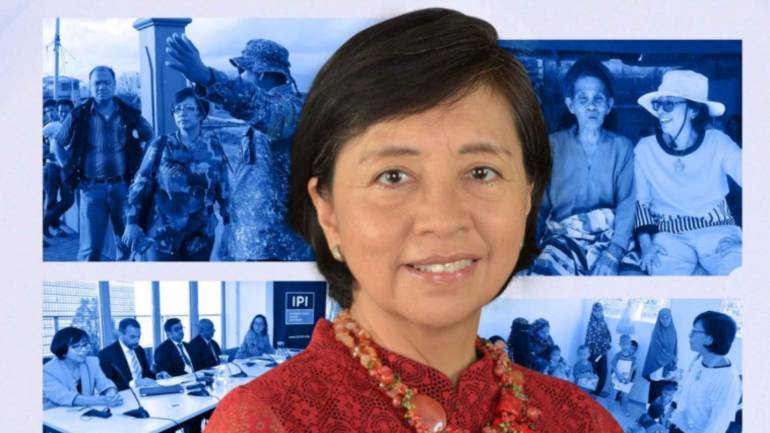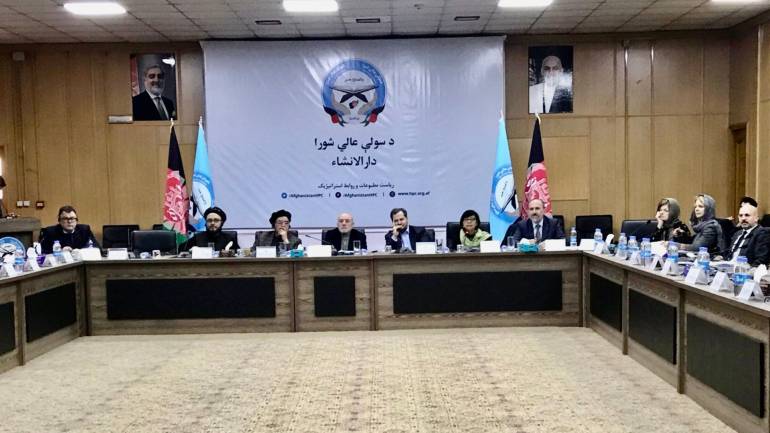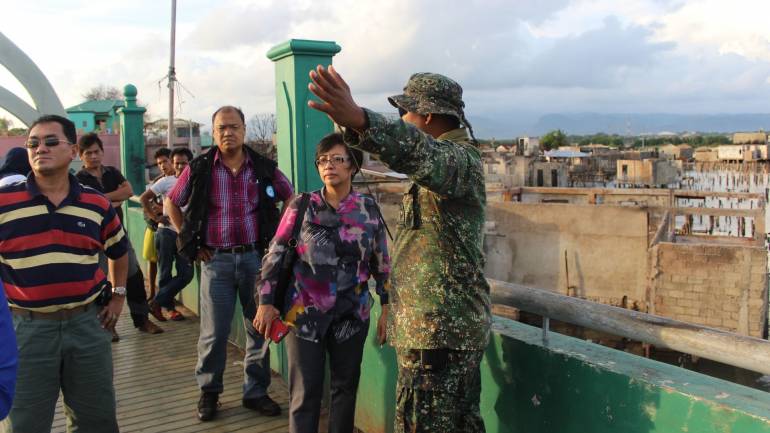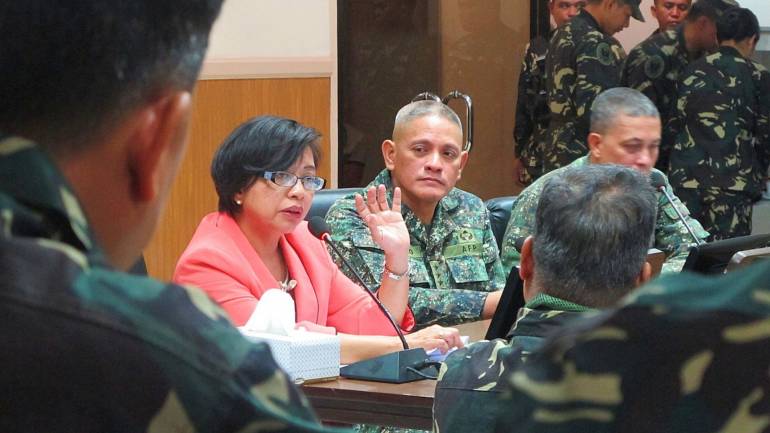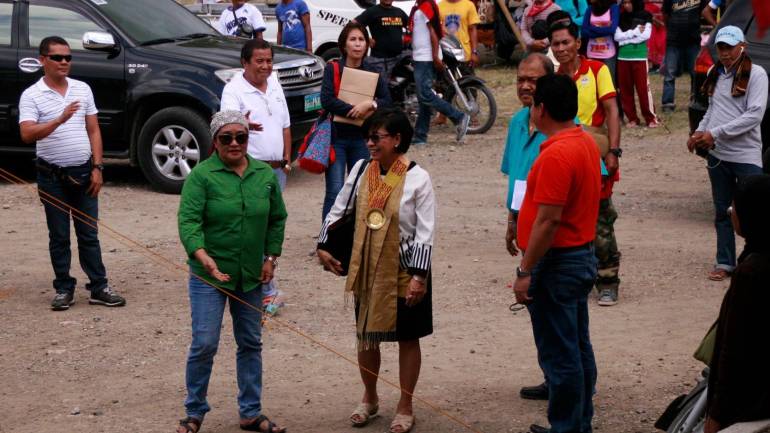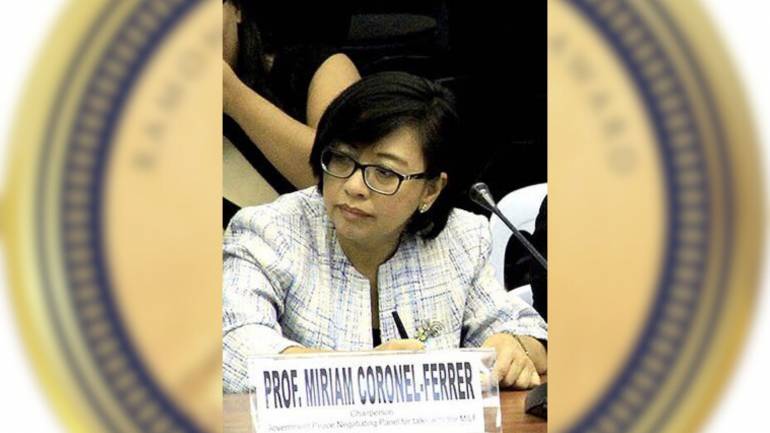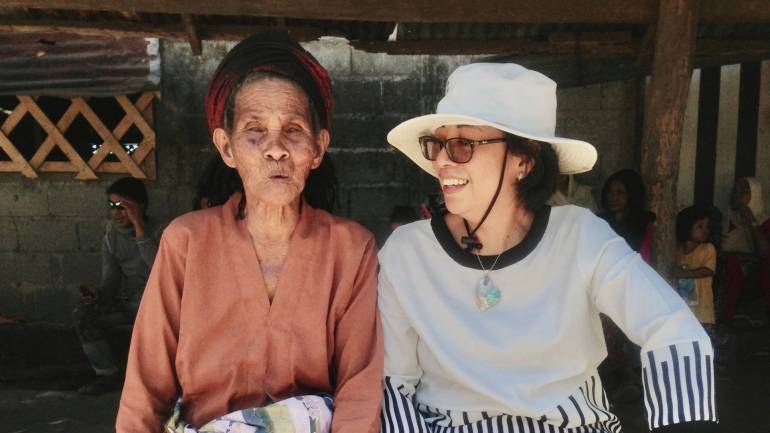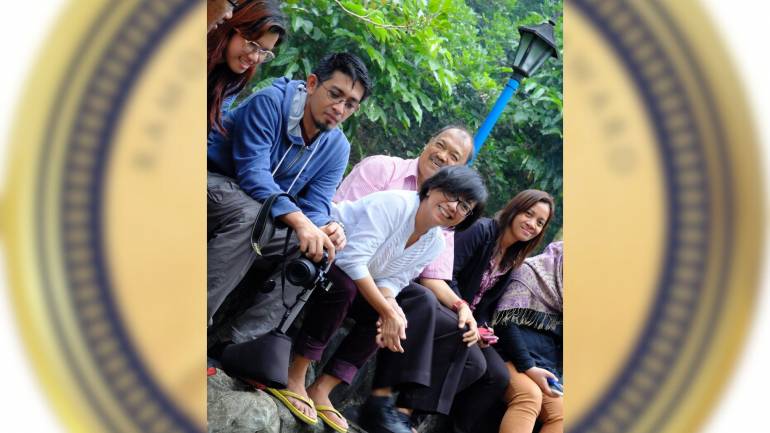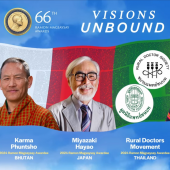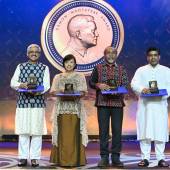Filipina peace negotiator among Ramon Magsaysay awardees for 2023
Confident, unassuming, assertive, peaceful, selfless, and highly capable are some of her traits that earned the respect of people she works with anywhere on the globe.
Miriam Coronel–Ferrer, is the only female of the four Ramon Magsaysay awardees in the 65th year of Asia’s premier prize and highest honor, for her peace-building contributions.
In her acceptance speech when the awardees were formally announced via a 30-minute Zoom conference on August 31, she consistently integrated her lifelong agenda for global peace.
"… we are all connected… the everyday peace of ordinary people is also important… peace and justice are basic human needs.. a better future for everyone.." were key phrases.
According to the Ramon Magsaysay Award, Coronel-Ferrer’s impassioned engagement in political issues started in the late 1970s, when, as a student activist, she joined the resistance against martial rule.
After the 1986 People Power Revolution that toppled the Marcos dictatorship, Coronel-Ferrer felt the need to find a peaceful resolution to the many armed conflicts that continued to divide the country.
With other women peacebuilders, she initiated the drafting of the Philippines’ first National Action Plan on Women, Peace, and Security. The draft was eventually adopted by the government in 2010 as part of its commitment to the United Nations Security Council Resolution 1325 (UNSCR 1325).
The landmark document urges all member states to ensure the protection of women’s rights during armed conflicts, mainstream the gender perspective in peacekeeping and peacebuilding, and advance the role of women as peacebuilders at all levels.
Dr. Jasmin Nario-Galace, senior program director of the Global Network of Women Peacebuilders, said in an interview with Radio Veritas Asia that this accomplishment is among the many reasons why Coronel-Ferrer deserves the award.
"She is the first woman to sign a major peace agreement as a chief negotiator, embodying the essence of UNSCR 1325. She was one of the three women in the Philippines who initiated the adoption of the first National Action Plan on Women, Peace, and Security, which called for women’s leadership in peace and security decisions."
In the same year, 2010, Coronel-Ferrer joined the government panel tasked with negotiating with the Moro Islamic Liberation Front (MILF), subsequently becoming its chief negotiator in the latter part of 2012.
In this role, she was consistently focused and determined, humble but tenacious, empathetic, and open to the positions of others. Soon, she earned admiration and respect for her analytical command of the issues and her skill as a negotiator.
In 2014, the Philippine government and MILF signed the Comprehensive Agreement on the Bangsamoro (CAB), ushering in the transition process that created the new Bangsamoro entity with a more empowered autonomous government.
Crucially, the agreement also provided a process for the decommissioning of weapons and combatants and the transformation of conflict-affected areas into peaceful civilian communities.
International observers have described the CAB as a role model for the inclusion of gender-responsive provisions and the inclusive participation of women and civil society organizations.
Coronel-Ferrer sees this achievement more modestly: "There is no perfect agreement, but we make it more imperfect by leaving women out of the process."
Nario-Galace says of the awardee: "She is an exceptionally intelligent and skilled advocate of human rights, disarmament, and nonviolent conflict resolution, evident through her leadership in organizations such as the Sulong CARHRIHL (Comprehensive Agreement on Respect for Human Rights and International Humanitarian Law).
Coronel-Ferrer’s long-standing peace advocacy has gone beyond the country’s borders. She has since been invited to be part of international teams looking into the conflict situations in East Timor and Cambodia. She had provided support for the peace programs of the Carter Center in its work on Sudan and Syria.
In 2018, she became a member of the United Nations Standby Team of Senior Mediation Advisers, the only one from Southeast Asia so far.
In her three years with the UN, she was deployed to support the mediation and preventive diplomacy work of UN missions in places like Afghanistan, Kosovo, Iraq, the Maldives, and the ASEAN region.
In 2020, Coronel-Ferrer co-founded the Southeast Asian Women Peace Mediators, a pioneering group of women engaged in convening safe spaces for dialogues and supporting mediation initiatives in countries like Myanmar and Afghanistan.
Today, this is her main work. In addition, she also sits on the board of trustees or advisory bodies of several key conflict resolution initiatives, such as the International Crisis Group, the Global Network of Women Peacebuilders, the Harvard University-based Negotiations Strategies Institute, and the Peace Treaty Initiative.
"Conflicts," she wisely observes, "are best resolved not through the annihilation of one party but by the mutual transformation of all players towards a common vision and shared responsibilities and accountability."
For Nario-Galace, Coronel-Ferrer is worth emulating. "She leads by example in women’s empowerment, mentoring, and inspiring emerging women leaders."
"She is never threatened by emerging women leaders. Instead, she mentors them and provides them the space to blossom, just as she did with me," said Nario-Galace.
The Bangsamoro people, like Noraida Abo, executive director of the United Youth of the Philippines-Women, said they are "very proud of Coronel-Ferrer.
"On behalf of the Bangsamoro people in the Bangsamoro Autonomous Region in Muslim Mindanao (BARMM), our heartiest congratulations for winning the Ramon Magsaysay Awards 2023. You really deserve the recognition, and with your endeavors, you are certainly the epitome of a peacebuilder, a woman with purpose and substance, said Abo through the RVA.
And for Coronel-Ferrer, in responding to messages like this, she would say, "We are in this together."
"… we are all connected… the everyday peace of ordinary people is also important… peace and justice are basic human needs .. a better future for everyone.." were key phrases.
Radio Veritas Asia (RVA), a media platform of the Catholic Church, aims to share Christ. RVA started in 1969 as a continental Catholic radio station to serve Asian countries in their respective local language, thus earning the tag “the Voice of Asian Christianity.” Responding to the emerging context, RVA embraced media platforms to connect with the global Asian audience via its 21 language websites and various social media platforms.





